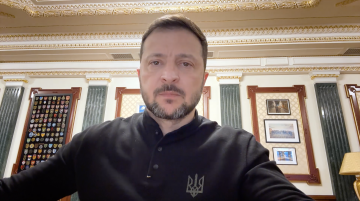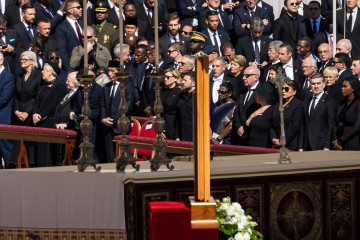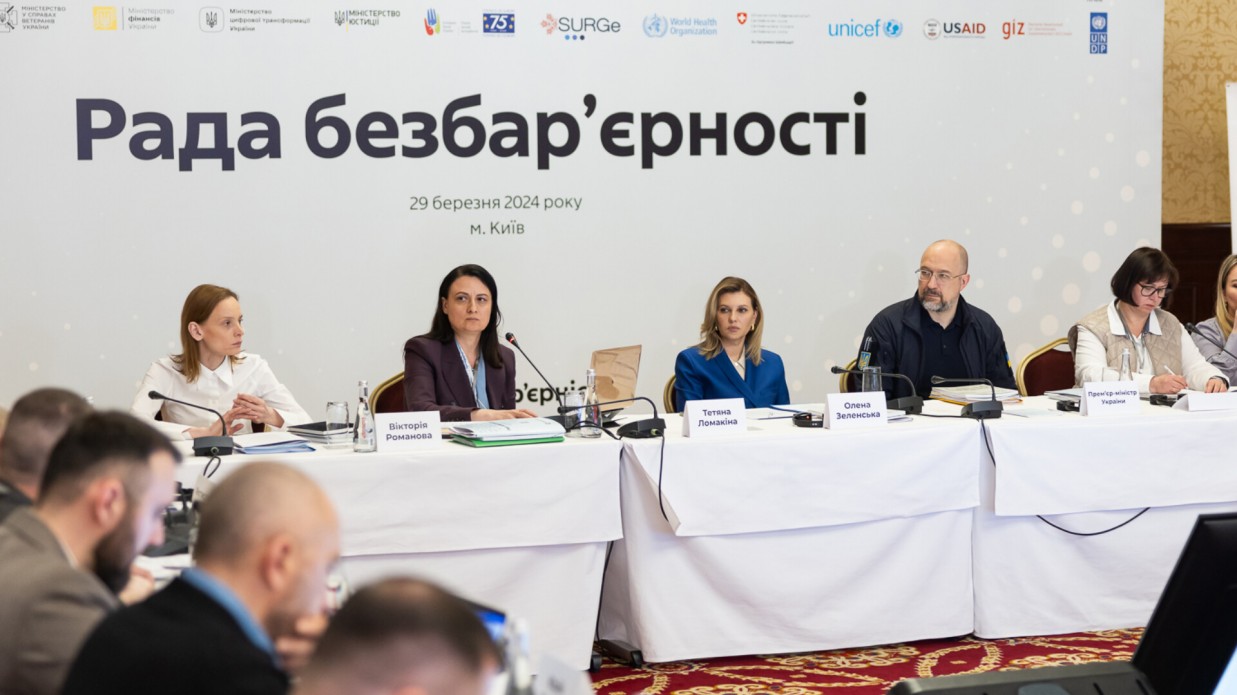First Lady of Ukraine Olena Zelenska participated in the meeting of the Barrier-Free Council, chaired by Prime Minister Denys Shmyhal and attended by representatives of the government, heads of relevant committees of the Verkhovna Rada, official representatives of the UN system, the Council of Europe, WHO, USAID, and other international organizations in Ukraine, embassies, heads of regional military administrations, representatives of territorial communities, and civil society.
During the meeting, practices for implementing accessibility at the local community level were discussed.
 "I would like to remind you that when we summed up the results of the previous year, we noted an alarming figure: for 50% of our society, people with disabilities remain invisible. Only a quarter of those surveyed say they notice people with disabilities in public places. In reality, there are officially only three million of them. And about 300,000 more have been added in the past two years due to hostile invasion. Social invisibility always has only one cause – a lack of opportunities. We need to open up, not close off. Make people visible through their needs. We don't have time for formal decisions. Every day, they try to destroy us. Instead, we must learn to preserve and value every inhabitant of the country. Only this is the path to mutual self-preservation and survival," said Olena Zelenska in her speech.
"I would like to remind you that when we summed up the results of the previous year, we noted an alarming figure: for 50% of our society, people with disabilities remain invisible. Only a quarter of those surveyed say they notice people with disabilities in public places. In reality, there are officially only three million of them. And about 300,000 more have been added in the past two years due to hostile invasion. Social invisibility always has only one cause – a lack of opportunities. We need to open up, not close off. Make people visible through their needs. We don't have time for formal decisions. Every day, they try to destroy us. Instead, we must learn to preserve and value every inhabitant of the country. Only this is the path to mutual self-preservation and survival," said Olena Zelenska in her speech.
The heads of the Rivne, Slavutych, Vinnytsia, and Opishnia communities shared their experiences. Representatives of civil society emphasized the increasing demand for barrier-free routes, spaces, and services: Mykola Zaritsky, defender and INVICTUS GAMES participant, and Vitaliy Pcholkin, head of the board of the NGO Group for Active Rehabilitation.
• Rivne territorial community:
Together with experts, they developed the Regulations on the Local Barrier-Free Council, which includes representatives of the municipality, accessibility experts, and representatives of various target groups from the community. Active work is being done to remove barriers to movement on the city streets.
The city of Rivne is involved in flagship projects such as "Education without Barriers" and the "Digital Education Program." There is also active development in providing rehabilitation services for adults (including veterans) and children.
• Slavutych territorial community:
The city of Slavutych has been working on implementing barrier-free solutions since 2021. For several years, the approved program "Slavutych – Barrier-Free City" and the corresponding action plan have been in place. Barrier-free routes are being laid out in the city. To engage citizens in implementing barrier-free solutions, the "Participatory Budget" program is in place, where winners receive resources to implement their own barrier-free initiatives.
The city community identifies accessibility as one of the key priorities for development, actively involving residents in discussions, evaluating results, and expanding the map of accessibility projects. This is reflected in strategic documents and budget planning because accessibility directly impacts the improvement of life in the city.
 • Vinnytsia territorial community:
• Vinnytsia territorial community:
Within the community, a working group for the development of a barrier-free urban space has already been established. They are adapting the transportation network and urban spaces according to the principles of inclusivity. Throughout the year, the start of meetings of the local Barrier-Free Council and the approval of the Barrier-Free Development Program in the community are planned.
The Vinnytsia territorial community is implementing flagship projects such as "Education for All" and "Work without Barriers." As part of the educational campaign "Ukraine without Barriers," meetings and lectures involving local residents are being held.
• Opishnia settlement territorial community:
Opishnia STC is taking the first steps towards creating barrier-free spaces and services. Currently, the community has developed an Action Plan for 2023-2024 for the implementation of the National Strategy for Creating a Barrier-Free Environment. A system for registering people with disabilities and the mobility-impaired population has also been introduced, and monitoring of the accessibility of municipal buildings is underway.
The community's priorities by the end of the year include:
•Ensuring barrier-free access to medical facilities, as well as to social and administrative services.
•Implementing barrier-free practices to involve people with disabilities, youth, the elderly, and parents with young children in cultural life.
During the Barrier-Free Council meeting, new flagship projects were presented, including:
•"Components of Accessibility in the Provision of Free Legal Aid," presented by Minister of Justice of Ukraine Denys Maliuska.
The main goal of the project is to provide every individual under the jurisdiction of Ukraine with the opportunity to access legal services to meet their legal needs conveniently.
The Ministry analyzed 437 legal aid bureaus regarding the accessibility of spaces and services. An internal assessment of free primary and secondary legal aid services was also conducted for various target audiences.
• "Barrier-Free and Inclusive Financial Sector," presented by Governor of the National Bank of Ukraine Andriy Pyshnyy.
The main goal of the project is the development of an inclusive and barrier-free financial services sector through the updating of regulatory processes, standards, and requirements for service providers.
Currently, draft Methodological Recommendations for the Rules of Inclusive Provision of Financial Services in Ukrainian Institutions is being refined based on the results of public discussions.
 First Lady of Ukraine Olena Zelenska presented the Guide to Barrier-Free Events during the meeting. According to these recommendations, public events should be held following the principles of accessibility and inclusion. Organizers are obliged to create equal and convenient conditions for the participation of all attendees, regardless of their physical, cognitive, or sensory differences. The Guide to Barrier-Free Events provides practical solutions for the preparation and conduct of online and offline events, including during wartime.
First Lady of Ukraine Olena Zelenska presented the Guide to Barrier-Free Events during the meeting. According to these recommendations, public events should be held following the principles of accessibility and inclusion. Organizers are obliged to create equal and convenient conditions for the participation of all attendees, regardless of their physical, cognitive, or sensory differences. The Guide to Barrier-Free Events provides practical solutions for the preparation and conduct of online and offline events, including during wartime.

"The organizers of events – conferences, exhibitions, any public gatherings – aim to include persons with war experience among their participants. But how do you organize this correctly? We never know who is next to us: what this person has been through and what they have seen, in what state they are now. But we can proactively create solutions that will provide a good experience for all guests. The Guide to Barrier-Free Events is precisely about such solutions. It's about respecting the experiences of different participants. It thoroughly covers everything – from communication to interior design because that's important too. One of the definitions of accessibility is 'when it's convenient for everyone without exception.' I think this could be the headline for the entire philosophy at the state and societal level because people with war experience are all of us now. That's why barrier-free events, and indeed – barrier-free living – are necessary for all of us," said the First Lady.




